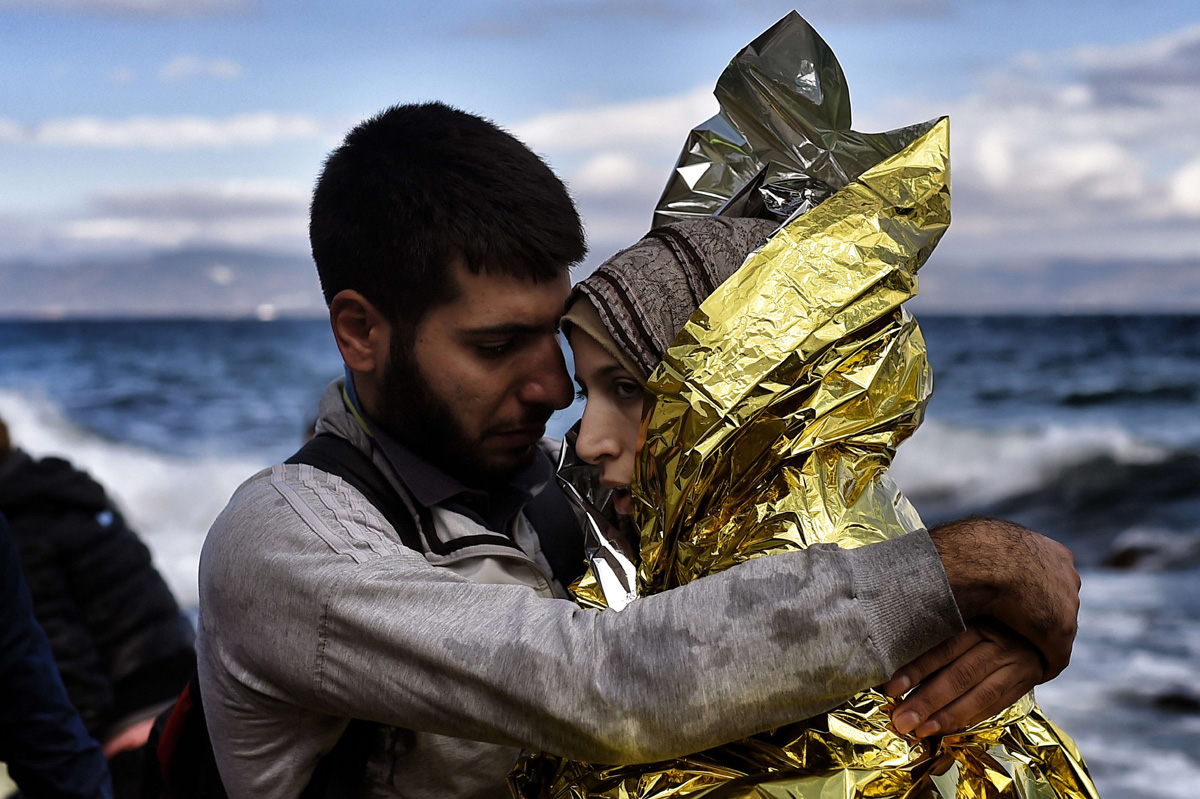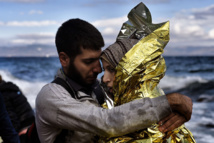"I am pleased to present this joint report, which reveals important role of criminal gangs in the migration crisis - said the Director of Europol Rob Wainwright. – The document sends a clear signal to the EU and the member states of the need to combat these groups, using all possibilities we have. Creation of the European Centre for the fight against illegal transportation of migrants at Europol, as well as co-operation with Interpol and other partners, give us all tools to do it. "
As the authors of the report say, the vast majority of migrants gets into Europe with help of criminal networks. They coordinate migrants from moment of crossing the border and until arrival at the destination point. According to the Organization, profit from the illegal transportation in 2015 amounted to $ 5-6 billion, which makes this activity one of the most profitable for organized crime in Europe.
"Given tightening of migration policies in many countries, these numbers will grow rapidly in the future - the speech says. – In total there are about 250 illegal transportation centers across Europe and beyond."
Members of the underground businesses organize virtually no interconnected network operating in the paths of migrants’ movement. The authors reported that the geography of the ways by which migrants are trying to get into Europe, whether land or sea, remains virtually unchanged.
For example, for more than a decade migrants has used a road along the western Mediterranean, running through Spain and Portugal. In 2015, frontier guards registered 7164 attempted illegal border crossings along the path. Mostly, the illegals came from Guinea, Algeria and Morocco. Migrants from Libya have traditionally chosen sea routes passing through the Central Mediterranean to the shores of Italy. "Over the past year, the flow of migrants has been reduced by 12%. However, we know that about 800 thousand migrants only in the same Libya are waiting for a chance to get to Europe", - Europol’s data contained in the report.
Migrants coming from Turkey seek to reach Europe across the border of Greece and Bulgaria. Another direction of traffic migration is the way leading to the Eastern European borders. Migrants using this option try to reach Europe via Belarus, Moldova, Ukraine and Russia. 1920 border crossing attempts, largely made by citizens of, Afghanistan, Vietnam and Syria, were registered in 2015.
Each of the illegal groups engaged in the migrants’ transportation monitors a certain path or segment. The groups’ composition, as a rule, include leaders controlling activities of the entire group, organizers responsible for local transportation in different parts of the path, and small helpers, who are at the bottom of the structure.
The Europol and Interpol’s information says that many of the cover activities suspects have been involved in a number of other similar illegal doings such as drug trafficking, forgery, illicit and slave trade.
"There are a number of reasons why the migration business is closely connected with the rest of the criminal world. This is about criminal past most of the participants of this activity have, paths of migration flows similar to routes used for trafficking of drugs, people and weapons." Need to seek ways of providing migrants with false documents also has a huge influence.
In 2016, experts predict a new wave of migrants coming into Europe. According to them, it will almost inevitably lead to competition between the groups, though clashes between them have not been reported so far. Such a struggle can result in a clan war and, as a consequence, overall increase in crime. This will lead to an increase in range of illegal actions, combining illegal migrants’ transportation with drug and slave trade, terrorism and forgery of documents. In this case, authorities of the European countries will have to tighten up procedure for migrants’ admission.
source: reuters.com
As the authors of the report say, the vast majority of migrants gets into Europe with help of criminal networks. They coordinate migrants from moment of crossing the border and until arrival at the destination point. According to the Organization, profit from the illegal transportation in 2015 amounted to $ 5-6 billion, which makes this activity one of the most profitable for organized crime in Europe.
"Given tightening of migration policies in many countries, these numbers will grow rapidly in the future - the speech says. – In total there are about 250 illegal transportation centers across Europe and beyond."
Members of the underground businesses organize virtually no interconnected network operating in the paths of migrants’ movement. The authors reported that the geography of the ways by which migrants are trying to get into Europe, whether land or sea, remains virtually unchanged.
For example, for more than a decade migrants has used a road along the western Mediterranean, running through Spain and Portugal. In 2015, frontier guards registered 7164 attempted illegal border crossings along the path. Mostly, the illegals came from Guinea, Algeria and Morocco. Migrants from Libya have traditionally chosen sea routes passing through the Central Mediterranean to the shores of Italy. "Over the past year, the flow of migrants has been reduced by 12%. However, we know that about 800 thousand migrants only in the same Libya are waiting for a chance to get to Europe", - Europol’s data contained in the report.
Migrants coming from Turkey seek to reach Europe across the border of Greece and Bulgaria. Another direction of traffic migration is the way leading to the Eastern European borders. Migrants using this option try to reach Europe via Belarus, Moldova, Ukraine and Russia. 1920 border crossing attempts, largely made by citizens of, Afghanistan, Vietnam and Syria, were registered in 2015.
Each of the illegal groups engaged in the migrants’ transportation monitors a certain path or segment. The groups’ composition, as a rule, include leaders controlling activities of the entire group, organizers responsible for local transportation in different parts of the path, and small helpers, who are at the bottom of the structure.
The Europol and Interpol’s information says that many of the cover activities suspects have been involved in a number of other similar illegal doings such as drug trafficking, forgery, illicit and slave trade.
"There are a number of reasons why the migration business is closely connected with the rest of the criminal world. This is about criminal past most of the participants of this activity have, paths of migration flows similar to routes used for trafficking of drugs, people and weapons." Need to seek ways of providing migrants with false documents also has a huge influence.
In 2016, experts predict a new wave of migrants coming into Europe. According to them, it will almost inevitably lead to competition between the groups, though clashes between them have not been reported so far. Such a struggle can result in a clan war and, as a consequence, overall increase in crime. This will lead to an increase in range of illegal actions, combining illegal migrants’ transportation with drug and slave trade, terrorism and forgery of documents. In this case, authorities of the European countries will have to tighten up procedure for migrants’ admission.
source: reuters.com



















